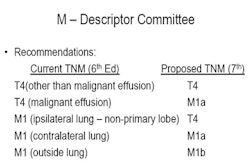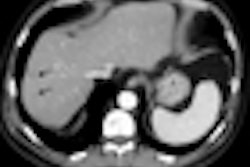Dear AuntMinnie Insider,
April showers may bring May flowers, but this May brought storms of controversy to the politics of virtual colonoscopy (also known as CT colonography or CTC).
A May 12 decision by the Centers for Medicare and Medicaid Services (CMS) to deny coverage for screening VC boomed like thunder through a provider community that was only half-expecting it -- a community that believes lack of influence, not lack of evidence, led to CMS' denial of coverage.
Advocates of virtual colonoscopy wasted no time in urging CMS to scrap the decision. Their doubts were certainly not assuaged by a May 27 New England Journal of Medicine editorial "applauding the landmark decision" to deny funding for CTC -- an editorial written, as it turns out, by parties to the CMS decision itself.
But it is research that tends to get top billing here in the Virtual Colonoscopy Digital Community, where this issue's Insider Exclusive features researchers from Italy who achieved robust sensitivity for flat lesions using computer-aided detection. As if that weren't enough, the group had used a reduced-prep protocol on most of the patients.
In a story from last month's International Symposium on Multidetector-Row CT, CTC expert Dr. Perry Pickhardt discussed extracolonic findings, concluding that although the search for them can't be avoided, the rewards are real.
And in a study presented at the recent American Roentgen Ray Society (ARRS) meeting, researchers from the University of Wisconsin found that virtual colonoscopy's high positive predictive value all but ensured that patients referred for conventional colonoscopy actually had a lesion that needed removing.
Doctors in Oregon found that deep sedation in conventional colonoscopy helped them find more polyps. And there's good news on the survival front. Thanks in large part to new drugs, metastatic colon cancer isn't the death sentence it once was. Be sure to scroll down for the rest of the news about colon cancer and screening.




















